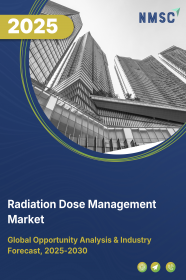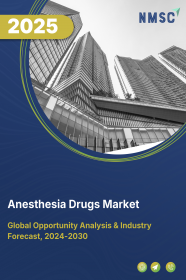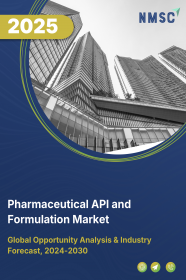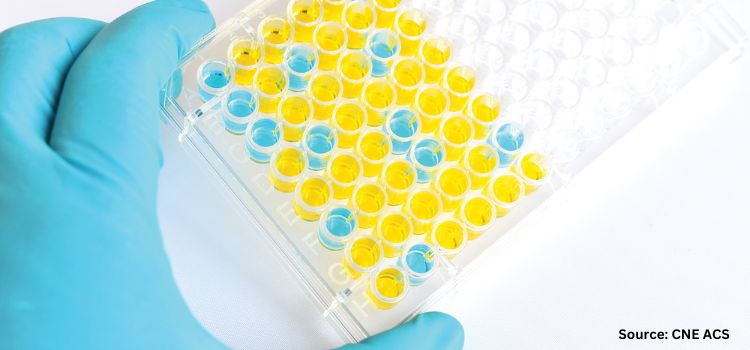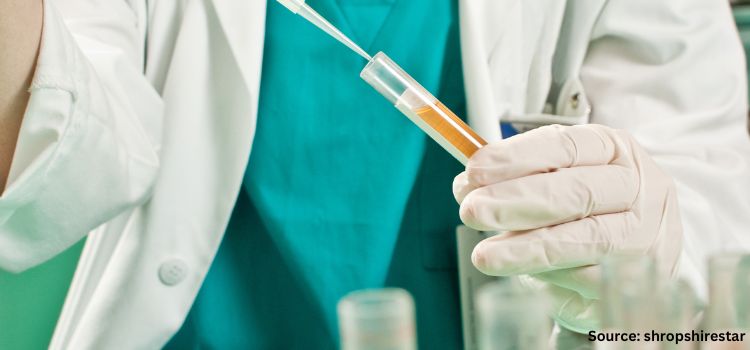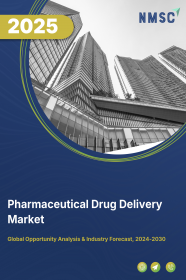
Pharmaceutical Drug Delivery Market by Route of Administration (Oral Drug Delivery, Injectable Drug Delivery, Topical Drug Delivery, Ocular Drug Delivery, Pulmonary Drug Delivery, Nasal Drug Delivery, Transmucosal Drug Delivery, and Implantable Drug Delivery), by Application (Infectious Diseases, Cancer, Cardiovascular Diseases, Central Nervous System Disorders, Autoimmune Diseases, and Others) and Others– Global Opportunity Analysis and Industry Forecast, 2024–2030
Market Definition:
The global Pharmaceutical Drug Delivery Market size was valued at USD 18.24 billion in 2023, and is predicted to reach USD 57.84 billion by 2030, with a CAGR of 17.9% from 2024 to 2030. The pharmaceutical drug delivery market refers to the sector within the pharmaceutical industry that focuses on developing, producing, and implementing various technologies, systems, and approaches used to deliver medications effectively and efficiently to patients. This market encompasses a wide range of drug delivery methods, including oral, injectable, transdermal, inhalable, and others.
These methods enhance drug efficacy, patient compliance, and overall therapeutic outcomes while minimizing potential side effects and discomfort. It involves the utilization of various drug carriers, formulations, and delivery routes to ensure that medications reach their intended targets within the body in a safe and controlled manner. The pharmaceutical drug delivery market plays a crucial role in advancing medical treatments and improving the overall quality of patient care.
Market Dynamics and Trends
The growing prevalence of chronic conditions such as cancer, diabetes, arthritis, asthma, and others is boosting the demand for drug delivery, leading to an overall market expansion. According to a report published by the World Health Organization (WHO) in February 2023, Cancer is a leading cause of death worldwide, accounting for about 10 million deaths in 2020.
In addition, according to a report published by the International Diabetes Federation in 2021, over 537 million people between the ages of 20 and 79 are predicted to have diabetes. Thus, an increase in the sale of diabetic medicines resulted in the growth of the pharmaceutical drug delivery market.
The advancement in oral drug solubility techniques within drug carriers such as nanoparticles, microspheres, and macroparticles significantly contributes to the growth of the pharmaceutical drug delivery market. These innovative carriers play a crucial role in improving the bioavailability of medications, ensuring that they can be effectively absorbed and distributed in the body when administered orally.
For instance, in March 2022, Evonik launched the microparticle technology “EUDRATEC SoluFlow” as a new product to its EUDRATEC portfolio. It improves the solubility of oral drug products and enhances the effectiveness of oral drug delivery. SoluFlow is a technology that transforms poorly soluble drugs into amorphous solid dispersion (ASD), reducing post-processing steps and making them easily compressible into tablets or capsules.
However, an increase in needle stick injuries is a factor restraining the growth of the pharmaceutical drug delivery market. For instance, in May 2023, the National Library of Medicine published 600,000 needlestick injuries in the U.S. in various healthcare institutions. On the contrary, the introduction of drug delivery devices such as prefilled syringes, autoinjectors, smart insulin pens, and others reduces dosing complexity. It is expected to create ample opportunities in the coming years.
Market Segmentations and Scope of the Study
The pharmaceutical delivery drug market share is segmented into route of administration, application, end user, and region. On the basis of route of administration, the market is segmented into oral drug delivery, injectable drug delivery, topical drug delivery, ocular drug delivery, pulmonary drug delivery, nasal drug delivery, transmucosal drug delivery, and implantable drug delivery.
On the basis of application, the market is categorized into infectious diseases, cancer, cardiovascular diseases, central nervous system disorders, autoimmune diseases, and other applications. Based on end user, the market is classified into hospitals, ambulatory surgical centers, home care settings, and other use facilities. The regional breakdown and analysis of each of the aforesaid segments includes regions, such as North America, Europe, Asia-Pacific, and the rest of the world (RoW).
Geographical Analysis
North America region holds a dominant share of the pharmaceutical drug delivery market, due to the introduction of smart medical devices that help track the information of treatment, including dose taken, date, time of injection, and others. These new developments in the healthcare industry enhanced the market growth and contributed to the development of the pharmaceutical drug delivery market.
For instance, in February 2023, BIOCORP received 510(k) clearance from the U.S. Food and Drug Administration (FDA) for its Mallya smart medical device. It can monitor the dosing of glucagon- including peptide 1 (GLP-1) receptor agonists. Biocorp claims this is the inaugural device in the U.S., capable of seamlessly connecting insulin and GLP-1 injector pens to a mobile application.
Also, the improvisation in drug administration routes by companies such as Becton, Dickson and Company, Pfizer, Inc., and others drives the market growth. These companies helped improve treatment options and administer the proper amount of medication, resulting in the market growth. For instance, in September 2022, Becton, Dickinson, and Company introduced a next-generation glass vaccine pre-filled syringe (PFS). It enhanced the performance and set new benchmarks for vaccination. The new PFS fastens the administration of vaccines, supports dose sparing, and reduces the wastage of medicines, which amplifies the medical sustainability.
On the other hand, Asia-Pacific is expected to show a steady rise in the pharmaceutical drug delivery market, due to the region’s expanding noncommunicable diseases. According to a report published by the National Library of Health in March 2022, about 27% of Indian adults have cardiovascular disease and 18% have diabetes, with the prevalence being substantially higher in urban regions than in rural areas. Thus, a spike in non-communicable infections led to an increase in the demand for drug administration routes, driving the growth of the market.
Additionally, local companies in the region are focusing on the improvement of storage procedures to extend the shelf life of pharmaceuticals, consequently enhancing medication longevity through modifications in drug delivery packaging. This factor contributed significantly to the market growth. For instance, in June 2022, Gufic Biosciences Limited introduced dual chamber bags in India, which led to the storage efficiency of unstable drugs that require reconstitution before being administered to a patient’s body.
Competitive Landscape
Various market players operating in the pharmaceutical drug delivery industry are West Pharmaceutical Services, Inc., Corning Incorporated, Bayer AG, Becton, Dickinson and Company, F. Hoffmann-La Roche AG, GlaxoSmithKline Plc, Johnson & Johnson, Novartis AG, Pfizer, Inc., Sanofi, and others to enhance their dominance over the global market.
Moreover, in June 2023, Bayer AG hosted its Pharmaceuticals R&D Event 2023 in four key therapeutic areas: oncology, cardiovascular diseases, neurology & rare diseases, and immunology. This strategic effort aims to bolster the company's expertise in treating solid tumors, positioning it as a leader in genitourinary, gastrointestinal, and lung cancer.
Bayer's early-stage projects focus on advanced approaches in precision molecular oncology, targeted radiotherapy, and next-generation immuno-oncology, which creates further opportunities for the market. For instance, in November 2022, Cipla Ltd. introduced a Leuprolide Acetate Injection Depot 22.5mg pre-filled syringe for advanced prostate cancer, designed for a three-month single-dose. This innovative drug delivery method simplified the treatment procedure and boosted patient convenience, which enhanced the market growth in this region.
Additionally, in January 2022, West Pharmaceutical Services, Inc. collaborated with Corning Incorporated to expand Corning's Valor Glass technology, an advanced injectable drug packaging and drug delivery system. Valor Glass Technology intends to improve drug storage and delivery, ensuring more reliable access to advanced medicines. This approach is crucial for public health. Its main objective is to promote patient safety and improve life-saving treatment in healthcare centers.
Key Benefits
-
The report provides a quantitative analysis and estimations of the pharmaceutical drug delivery industry from 2024 to 2030, which assists in identifying the prevailing market opportunities.
-
The study comprises a deep dive analysis of the pharmaceutical drug delivery market including the current and future trends to depict prevalent investment pockets in the market.
-
Information related to the key drivers, restraints, and opportunities and their impact on the pharmaceutical drug delivery market is provided in the report.
-
Competitive analysis of the key players, along with their market share is provided in the report.
-
A SWOT analysis and the Porter's Five Forces model is elaborated on in the study.
-
Value chain analysis in the pharmaceutical drug delivery market study provides a clear picture of the roles of the stakeholders.
Pharmaceutical Drug Delivery Market Key Segments
By Route of Administration
-
Oral drug delivery
-
Injectable drug delivery
-
Topical drug delivery
-
Ocular Drugs
-
Pulmonary drug delivery
-
Nasal drug delivery
-
Transmucosal drug delivery
-
Implantable drug delivery
By Application
-
Infectious diseases
-
Cancer
-
Cardiovascular diseases
-
Diabetes
-
Respiratory diseases
-
Central nervous system disorders
-
Autoimmune diseases
-
Other applications
By End Users
-
Hospitals
-
Ambulatory Surgical Centers
-
Home care settings
-
Diagnostic Centers
-
Others
By Region
-
North America
-
The U.S.
-
Canada
-
Mexico
-
-
Europe
-
The UK
-
Germany
-
France
-
Italy
-
Spain
-
Denmark
-
Netherlands
-
Finland
-
Sweden
-
Norway
-
Russia
-
Rest of Europe
-
-
Asia-Pacific
-
China
-
Japan
-
India
-
South Korea
-
Australia
-
Indonesia
-
Singapore
-
Taiwan
-
Thailand
-
Rest of Asia-Pacific
-
-
RoW
-
Latin America
-
Middle East
-
Africa
-
Key Players
-
West Pharmaceutical Services, Inc.
-
Corning Incorporated
-
Bayer AG
-
Becton, Dickinson and Company
-
F. Hoffmann-La Roche AG
-
GlaxoSmithKline Plc
-
Johnson & Johnson
-
Novartis AG
-
Pfizer, Inc.
-
Sanofi
REPORT SCOPE AND SEGMENTATION:
|
Parameters |
Details |
|
Market Size in 2023 |
USD 18.24 billion |
|
Revenue Forecast in 2030 |
USD 57.84 billion |
|
Growth Rate |
CAGR of 17.9% from 2024 to 2030 |
|
Analysis Period |
2023–2030 |
|
Base Year Considered |
2023 |
|
Forecast Period |
2024–2030 |
|
Market Size Estimation |
billion (USD) |
|
Growth Factors |
Rising cases of chronic diseases globally Increasing advancement in oral drug solubility techniques |
|
Countries Covered |
28 |
|
Companies Profiled |
10 |
|
Market Share |
Available for 10 companies |
|
Customization Scope |
Free customization (equivalent up to 80 working hours of analysts) after purchase. Addition or alteration to country, regional, and segment scope. |
|
Pricing and Purchase Options |
Avail customized purchase options to meet your exact research needs. |

















 Speak to Our Analyst
Speak to Our Analyst



